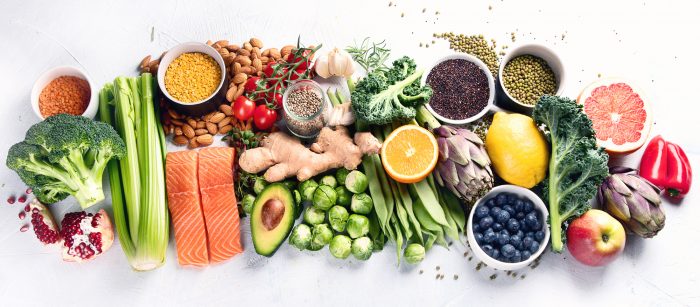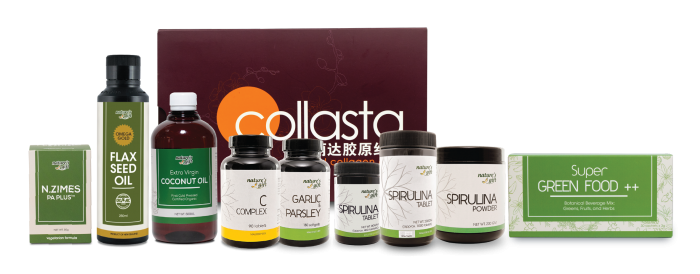“You Are What You Eat” is a phrase that most of us would have heard before.
Interestingly enough, this phrase was first used 195 years ago by French author Anthelme Brillat-Savarin when he coined the phrase: “Tell me what you eat and I will tell you what you are” in his book Physiologie du gout, ou, Méditations de gastronomie transcendante…
In a literal sense, it is quite true that ‘you are what you eat’ because the food that we eat does play a pivotal role in our health and affects our immune system especially.
The Immune System—Protector of the Body
The immune system’s role is to identify and destroy foreign or otherwise harmful material within the body. The immune system is unlike other bodily systems in that it is not a group of physical structures but a system of complex interactions involving many different organs, structures, and substances. Ideally, all of these components work together to protect the body against infection and disease.
All of the viruses and bacteria that infect the body are handled by the immune system, so to protect ourselves, especially during the current pandemic, it is crucial to have a strong immune system.
Amazing as it is, the immune system can work as it should, only if cared for properly. This means getting all of the right nutrients, providing the right environment, and avoiding things that tend to lower immunity.
Many elements of the environment we live in today compromise our immune systems’ defensive capabilities. The chemicals in the household cleaners we use; the overuse of antibiotics and other drugs; the antibiotics, pesticides, and additives present in the foods we eat; and the exposure to environmental pollutants, all place a strain on the immune system.
Another factor that adversely affects the immune system is stress. Stress results in a sequence of events that suppresses the normal activity of white blood cells, places undue demands on the endocrine system, and depletes the body of needed nutrients. The result is impaired healing ability and lowered defence against infection.
Does Diet Affect the Immune System?
The dietary choices that we make can directly influence our immune system for better or worse. Unhealthy eating patterns have links to increased risks of disease, allergies, and impaired immunity.
An unhealthy diet consists of heavily processed foods that are high in calories and low in nutrients. This diet is often low in protective foods such as vegetables and fruits and thus has strong links to an increased risk of diseases. Additionally, a deficiency of nutrients can also affect immunity. Nutrient deficiencies are more common in those consuming heavily processed diets low in nutrients dense foods.
In contrast, a healthy diet that is rich in whole foods, such as vegetables, fruit, nuts, legumes, and seafood, and low in heavily processed foods can reduce disease risk and promote immunity. Consuming whole foods will provide the body with the appropriate amounts of nutrients.
The interaction between diet and immunity is highly complex, and scientists are still learning how the food we eat impacts the immune system.
Reducing the Body’s Inflammatory Response
The way an unhealthy diet can negatively affect immunity is by promoting inflammatory responses of the immune system. These inflammatory responses, caused by unhealthy foods or foods that you are even mildly intolerant or allergic to, weaken the immune system by taking up resources that should be used for defending the body against pathogens. Over time, they can also cause additional allergic reactions or even autoimmune problems where the immune system is hyperactive and triggered for the wrong reasons, attacking the body’s own cells, resulting in more inflammation.
Hence, the decisions that we make in our food choices should aim towards reducing inflammatory response.
Below are the common culprits that raise inflammation. If we consume these regularly, our body will gradually transition into a state of chronic inflammation. So, try your best to avoid these foods:
- fried foods
- refined flours
- refined sugars
- hormone- and antibiotic-laden animal products
- synthetic sweeteners
- artificial food additives
- oxidized cholesterol (cholesterol that has gone rancid, such as that from overcooked food)
- foods cooked at high temperatures, especially if cooked with vegetable oil (such as peanut, corn, and soy)
- trans fat: margarine, vegetable shortening, and all products listing them as ingredients or made with partially hydrogenated oils of any kind.
Simple Tips to Improve Your Immune System

Eat healthy:
A healthy diet is important for maintaining a strong immune system. Fruit and vegetables should comprise 50% of our daily diet while avoiding or limiting the foods mentioned in the above section as much as possible.
Drink water:
Staying hydrated has positive effects on our immune system. Distilled water, fresh fruit and vegetable juice made using the Alpha Juicer, and herbal teas like VitaTea are just a few suggestions.

Overhaul your body with Dr. Lynn’s Detoxification & Rejuvenation Programme (DRP):
The DRP is designed to detoxify and rebuild cells in order to improve immunity.
Kick the butt and bottle:
Avoid smoking and alcohol will go a long way in maintaining a healthy immune system, as they are both sources of toxins and inflammation.
Supplements to boost your immunity:
NewLife™ Super Green Food ++ and Spirulina are concentrated sources of vitamins, minerals, amino acids, enzymes, chlorophyll, and powerful antioxidants that help to reduce inflammation and strengthen immunity.
A sign that a food is rich in antioxidants is its colour. Deep coloured foods are rich in antioxidants and provide a convenient source of nutrients that fight to repair cells damaged by inflammation.
Dragonfruit, beetroot, and blueberries are prime examples.
NewLife™ Collasta contains a generous amount of astaxanthin, a super antioxidant extracted from red algae, and other ingredients such as hydrolysed marine collagen, grapeseed extract, green tea extract, pine bark extract, lycopene, and mangosteen extract. Astaxanthin has an antioxidant capacity up to 550 times stronger than vitamin E and 40 times stronger than beta-carotene.
Antioxidants help to reduce and control inflammation in the body, which in the long run contributes to disease prevention, better health, and increased well-being.
NewLife™ N.Zimes PA Plus™, which contains a complete spectrum of enzymes including bromelain. Bromelain is a powerful digestive enzyme that helps regulate the immune response and prevent unwanted inflammation.
NewLife™ Extra Virgin Coconut Oil is cold-pressed and naturally processed from freshly harvested organic mature coconut. In many recent studies, the lauric acid in virgin coconut oil reduces inflammation in cells. One to two spoonfuls of virgin coconut oil a day goes a long way.
NewLife™ Omega Gold Flaxseed Oil assures the highest quality oil extracted from organically grown flax seeds using a cold-press process that eliminates the damaging effects of light, oxygen, and heat.
Flaxseed oil is one of the best sources of natural Omega-3. Most people suffer from a deficiency of the Essential Fatty Acids (EFAs) contained in flaxseed oil. EFAs are necessary fats that humans cannot synthesize and must be obtained through diet. EFAs support the cardiovascular, reproductive, immune, and nervous systems.
NewLife™ Garlic & Parsley
Garlic is considered as an anti-inflammatory superstar. Organosulfur compounds derived from garlic may lower the production of substances in the blood that boost inflammation. Regular intake of garlic may help promote healthy digestion as well.
NewLife™ C Complex
Vitamin C is popularly known as an antioxidant that is beneficial to the immune system. This essential vitamin also aids in digestion by supporting healthy teeth and gums and helps the body absorb iron.
In a nutshell, some foods can trigger inflammation and raise your risk of chronic disease, while some foods can reduce inflammation and heal your body—every bite counts. Start moving towards a healthier diet and stronger immune system today!

